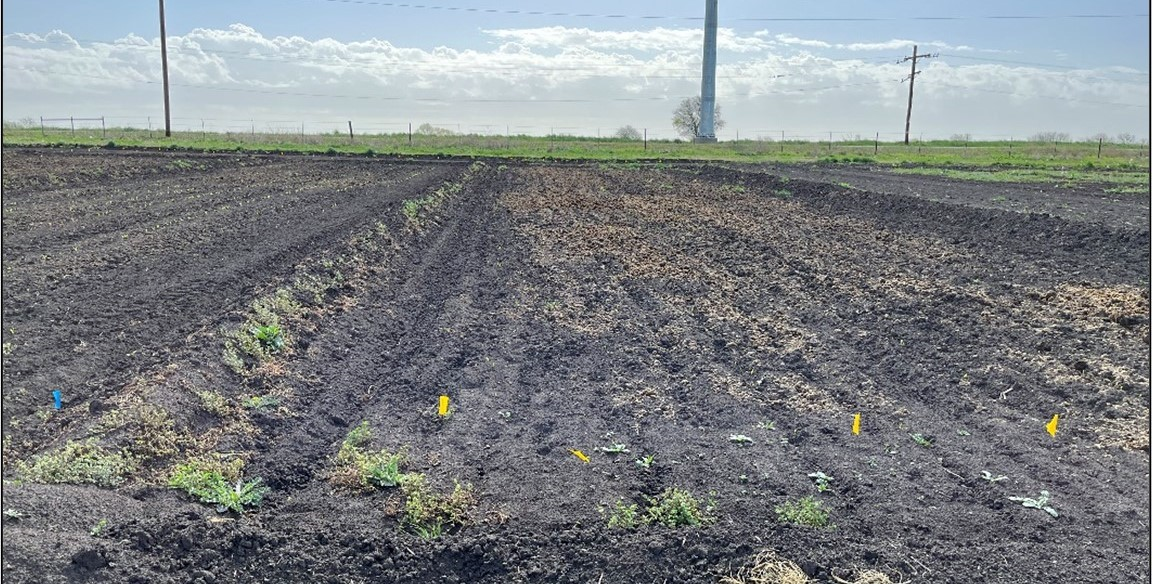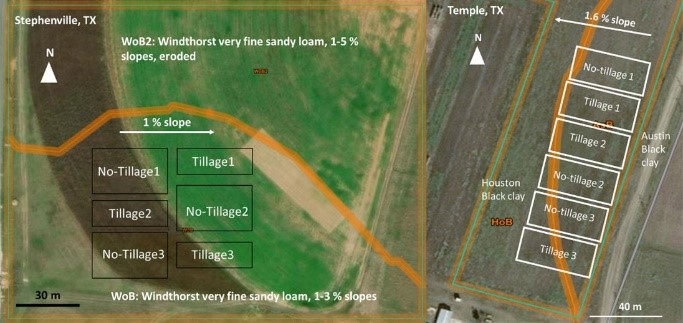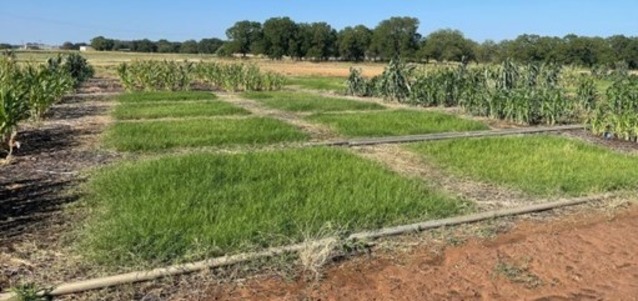Texas A&M AgriLife to lead study of manure application practices
February 2023
Texas A&M AgriLife Research has received more than $2.3 million in funding from the Natural Resources Conservation Service (NRCS) to study the soil and water quality impacts of manure application practices at the field scale, and to develop guidelines for safe and sustainable manure application.
Farmers have long understood that manure is an excellent source of nutrients for crops. However, when applied nutrients exceed crop requirements, they can leach or wash into groundwater and waterways and cause problems like weed and algal growth. Bacterial pathogens and antibiotic residues in manure can also contaminate the environment, potentially leading to human health problems and increases in antibiotic-resistant bacteria.
There are several ways to prevent or reduce the severity of such contamination. Plants themselves uptake and neutralize different nutrients, antibiotics and pathogens (a process known as “phytoremediation”) at various rates, depending on the soil type and the species and productivity of the crop. Certain agricultural practices— like crop species selection, conservation tillage and the application of soil amendments like biochar—can boost rates of phytoremediation and mitigate adverse health and environmental effects of manure application.
But while the effects of manure contaminants and mitigating agricultural practices have been studied in controlled environments, research at the field scale has been lacking. There are significant gaps in our knowledge of how, for example, excess phosphorus or a specific pathogen or antibiotic residue will move through a particular cropland field. The soil type and chemistry of the field, the exact crop planted, the management techniques applied, and countless other variables will all interact to affect these dynamics.

Plot following amendment application and planting.
Dr. Jaehak Jeong, a research scientist at the Texas A&M AgriLife Blackland Research and Extension Center in Temple, Texas, and principal investigator for the study, said the need for more field research and guidance on manure application had become apparent in recent years.
“NRCS operates many federal level conservation programs. These programs have protocols on how to support large-scale farming operations, but they have very little guidance on manure application,” Jeong said. “We started to work on this proposal about three years prior to getting funding,” he said, with the idea that “NRCS [would have] long-term data from the field down the road when they need it” for setting and updating guidelines.
Dr. Jeong also noted that there are not currently any tools specifically designed help predict the impacts of manure application at the field scale. Computer simulation models allow scientists to solve these types of complex problems by incorporating and digesting large amounts of information-- including data on soils, crops and crop management practices, as well as algorithms that describe the biophysical processes at issue. Texas A&M’s Agricultural Policy Environmental eXtender (APEX), a model developed to predict management and land use impacts on soil and water quality for individual fields, whole farms or small watersheds, is particularly well-suited to this project. APEX is a key simulator used in the NRCS Conservation Effects Assessment Project (CEAP) for evaluating agricultural conservation practices in croplands; however, it has not been tested or validated on nutrient leaching or yields on manure-fertilized fields (with and without conservation practices), nor on the dynamics of pathogens or antibiotics under such conditions.
“A&M has been supporting NRCS for 20 years with the APEX model,” Jeong said. “We wanted to incorporate modules within APEX” to assess these processes and dynamics.

Sample maps of field experiments in Temple and Stephenville.

Sample microplot crops at Stephenville experiment station.
With support from NRCS, Dr. Jeong will lead a multi-disciplinary team of scientists from Texas A&M AgriLife Research, USDA-ARS and the Southwest Regional Dairy Center in conducting long-term field-scale experiments and laboratory analyses to better understand the fundamental processes of soil management and phytoremediation on dairy waste contaminants. The team will use data from these experiments to develop characteristic parameters and algorithms for qualitative assessment in APEX and will then apply a machine learning technique to scale up the results. Ultimately, the study will establish a framework for determining optimal manure application practices for various soils, crops and climate regions, as well as guidelines for priority management practices.
Dr. Jeong is optimistic that the impact of the study could be significant. “The goal is to use what we learn in the lab and in field experiments to ultimately provide guidance across U.S. croplands and pasturelands.”
